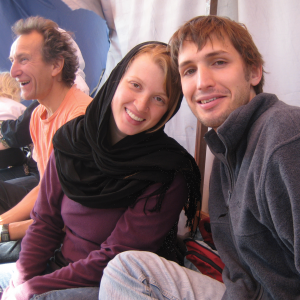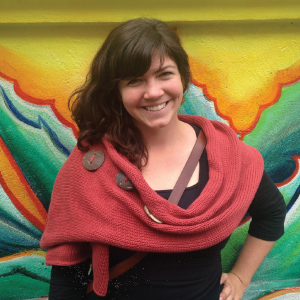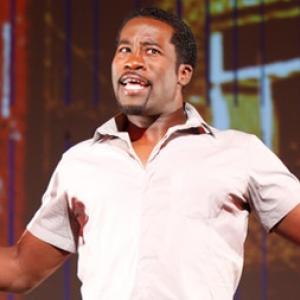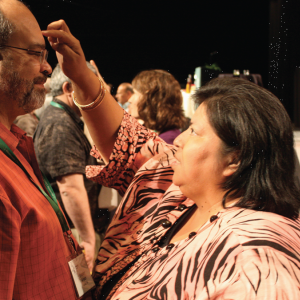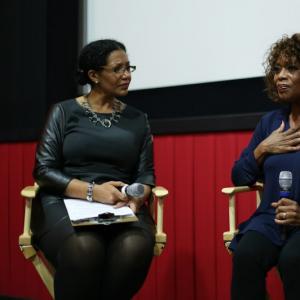
Rebecca Kraybill, originally from Lancaster, Pa., is the editorial assistant to Sojourners magazine. Her love for print publications started in elementary school when she submitted her so-called “jokes” to Reader’s Digest in the dream that they would be published. Though they never were, she has found that the power of the written and printed word has driven her since.Rebecca graduated from Goshen College in 2013 with a degree in English writing. While at Goshen, she served as the editor-in-chief of the college newspaper and a leader of the student women’s association. She spent a semester studying abroad in Sichuan Province, China.Journalism has become a way for Rebecca to explore her interest in words, people, and stories. She has reported for The Intelligencer Journal/New Era in Lancaster, Pa. and The Elkhart Truth in Elkhart, Ind.Rebecca is humbled to work in a setting where the stories of human struggle, compassion, and faith are told over and over again. She read recently that “some years ask questions and some years answer them.” She’s not sure yet if her year in D.C. will prompt more asking or more answering, but she’s glad that Sojourners eagerly welcomes both.
Posts By This Author
Six Questions for Kelly and Peter Shenk Koontz
Peter and Kelly Shenk Koontz know the difficulties and joys of peacebuilding in Kabul, Afghanistan.
Bio: Kelly and Peter Shenk Koontz spent the last three years serving in Kabul, Afghanistan, through a Mennonite Central Committee partner.
Website: MCC.org
1. What work were you doing in Afghanistan?
We worked with a Mennonite Central Committee (MCC) partner in Kabul as Peacebuilding Project Managers. Our job was to integrate peacebuilding within different sectors of the partner organization, including adult education, community development, and many others. Day-to-day, this primarily meant developing curriculum and planning and conducting trainings for a variety of contexts—including rural community development teams and university students in Kabul.
Five Questions for Katerina Friesen
Katerina Friesen, a seminary student, knows the labor of love of land-based ministry.
Bio:
Katerina Friesen is studying theology and peace studies at Anabaptist Mennonite Biblical Seminary in Elkhart, Ind.
1. How would you describe your current vocational role?
I see my role as both revaluing what has been cast down and degraded and building resilient communities. So far this has taken shape through land-based ministries of farming and community gardening, inviting people to work together and celebrate the sacramental in soil, food, and one another.
2. You spent several years with the Abundant Table Farm Project in Santa Paula, Calif. Can you describe the project and your role there?
The Abundant Table Farm Project is a working farm and young adult internship program that has evolved into a Christian community. I joined the project in 2009 and lived in community with four other women. My daily work of farming gave me a bodily understanding of farm workers’ labor and the need for justice and wholeness in our incredibly disconnected food system.
The Power to Heal
A conversation with writer and performer Daniel Beaty
“I AM A storyteller,” says Daniel Beaty, “and my purpose in the world is to inspire people to transform pain to power.”
He was first inspired to share his stories when his third-grade teacher showed a videotape of Martin Luther King Jr.’s “I Have a Dream” speech. Now as a writer, actor, singer, teacher, and motivational speaker, his storytelling is expressed in a dizzying array of different forms and outlets. The week in April that Sojourners’ editorial assistant Rebecca Kraybill interviewed him, Beaty was doing daily performances in Los Angeles of a one-person play he wrote on the life of performer and activist Paul Robeson, “The Tallest Tree in the Forest” (in which he plays 40 characters and sings 14 songs) and, during the day, taping for a Ford Foundation-funded documentary on work he does with children of incarcerated parents.
This was just a fortnight after Beaty finished a six-week speaking tour in support of his memoir, Transforming Pain to Power: Unlock Your Unlimited Potential (Penguin-Random House). He’s also the author of a children’s book released in December 2013 by Little, Brown and Company, Knock Knock: My Dad’s Dream for Me, with graphics by award-winning illustrator Bryan Collier, which is an adaptation of a poem Beaty wrote about his experience growing up with an incarcerated father. “Knock knock down the doors that I could not” is one especially poignant line the father in the book writes to the son; it carries a call to healing and liberation that is found in all of Beaty’s work.
Kraybill talked with Beaty about the effects of mass incarceration on families, the power of a “theater sanctuary,” and how the arts call us toward “the capacity to do better.”
Pittsburgh Bridge Project Knits Together Communities
Amanda Gross describes herself as a “weaver of things and people.”
Gross, a fiber artist based in Pittsburgh, Pa., has been weaving things — from quilts to bags to skirts — for years. But, as a “weaver of people,” Gross completed her biggest project yet this fall.
Gross is the head artist behind the Knit the Bridge project, a massive community effort that covered the Andy Warhol Bridge in Pittsburgh with knit and crochet panels. From August to September, Knit the Bridge workers installed 600 handmade blankets across the 1,061-ft. long bridge.
MAP: The Keystone XL's Path of Destruction
A map of the proposed route for the Keystone XL pipeline
A map of the proposed route for the Keystone XL pipeline
Four Questions for Tyrone Parker
Tyrone Parker works with urban youth and families in the nation's capital.
Bio: Tyrone Parker is the executive director of Alliance of Concerned Men (ACM), a nonprofit that works with youth living in high-crime areas in Washington, D.C.
1. What event or episode in your life has most informed your passion for working with urban youth and families?
One was the loss of my son, Rodney [who was killed in 1989]. The other was the record number of homicides within the District of Columbia. The District was once considered the “murder capital” of the United States.
When we first got started with the intervention program, it was due to a 12-year-old kid who was shot in the nation’s capital on the day of the Clinton inauguration. If you would’ve gone 10 minutes on East Capitol Street, you would’ve seen the inauguration with a major celebration. And 10 minutes down the same street, you had a whole community under house arrest. After that, we came together as a group to form the Alliance of Concerned Men.
2. What sorts of services and programs does ACM provide?
We teach a number of skills to at-risk youth, including gang intervention/prevention and mediation, workforce development, life skills training, leadership development, coaching for re-entry, and youth gang conflict resolution.
Twitter Conversation Responds to Myth That Clothing Encourages Sexual Violence
Pink princess pajamas. Jeans and a t-shirt. Sweatpants and a baggy sweater.
When Twitter user Christina Fox (@Steenfox) asked her followers, “What were you wearing when you were assaulted?” some answered with these clothes.
Fox prompted the question after reading a story about a 60-year-old woman who was raped by her grandson.
AUDIO: Carol Roth’s Work with Native Mennonites
Carol Roth offers support, resources, and ministry to Native Mennonites and their conferences.
Carol Roth offers support, resources, and ministry to Native Mennonites and their conferences.
Five Questions for Carol Roth
Carol Roth, a staff leader with Native Mennonite Ministries, connects Native Mennonites with the broader Mennonite church.
Bio: Carol Roth [Choctaw] is staff leader for Native Mennonite Ministries, a group that does liaison work between Native Mennonites and the broader Mennonite church. www.mennoniteusa.org/about/structure/related/
1. What are you most passionate about in your vocational role?
I’m passionate about working with the Native Mennonite people and helping them find a place in the Mennonite church. Unfortunately, some of the Native churches aren’t close to the Mennonite conferences, so you have to drive 800 miles to be connected to a conference, especially when you live on a reservation without internet or telephone. So my role is to connect the conference ministers and the conference with the Native churches and get them involved.
2. How did you come to straddle the Mennonite and Choctaw traditions?
When my twin sister and I were born [on a Choctaw reservation in Mississippi], my mom felt like she couldn’t give adequate care to two newborns. It happened that there were Mennonite missionaries who had moved nearby to help with the Choctaw group, and my parents asked if they could care for us for the winter. My parents realized how well they were taking care of us, so they asked if they could continue to care for us. My parents didn’t want them to adopt us, because they wanted us to keep our culture. So we grew up with the Mennonite missionaries, and then pretty much for all our lives attended one of the Choctaw churches.
A Tribute to Mandela
These magazine articles and blog posts published by Sojourners through the years pay tribute to the great South African leader.
Telling the Forbidden Truth
"Talking Taboo: American Christian Women Get Frank About Faith," White Cloud Press
THE WOMEN IN Talking Taboo: American Christian Women Get Frank About Faith aren’t just frank. They are courageous, clever, and wildly passionate.
This anthology, edited by Erin S. Lane and Enuma C. Okoro, asks 40 women under 40 to respond to the question, “What taboos remain in the church at the intersection of faith and gender?” The result is a collection of stories by women of faith (Baptist, Presbyterian, Mennonite, Catholic, Unitarian Universalist, and more) in a variety of roles (pastor, mother, writer, teacher, student, and more).
The women share times they have felt shamed, alienated, discouraged, or alone as women seeking a home in the church. From addressing domestic violence to lust to pregnancy to the role of a woman pastor’s body, the stories are raw in the way first-person narrative calls upon honesty and vulnerability to trump perfect prose or style.
Anthologies often stick to one structural extreme: Either they are rigid and theme-driven, or loose and nomadic. Talking Taboo follows the latter. Lane’s introduction promises no arc of narrative, no solid take-away message. The stories are here, she writes, because women are agreeing to “speak for ourselves.”
Foster Care Resources
Resources that help address the modern-day "orphans in distress" in our midst
Resources that help address the modern-day "orphans in distress" in our midst
Revealing an Often Unseen New York City
“She wakes to the sound of breathing. The smaller children lie tangled beside her, their chests rising and falling under winter coats and wool blankets.”
So begins the New York Times story following Dasani, an 11-year-old girl living homeless in New York. Dasani lives with her parents and seven siblings in a family residence shelter. From school to dance class to home, Dasani feels the weight of poverty and an unstable family.
According to the story, one in five children in America live in poverty, “giving the United States the highest child poverty rate of any developed nation except for Romania.”
In this five-part multimedia story, life told through Dasani’s eyes offers an honest look at homelessness and the pursuit for a hopeful future.
Read the full story here.
VIDEO: The Poet of Poverty
Father Michael Doyle's poetry captures a city of despair and hope.
AUDIO: A New Life for Weapons
An interview with Mike Martin, founder of RAWTools.
Boo! You're Saved
Can you be scared into salvation?
For the past 41 years, Liberty University’s “Scaremare” has attracted thousands to its haunted attraction, where students in costumes deliver thrills and screams throughout a guided tour.
The university’s Center for Youth Ministries sponsors the annual October event, boasting to be one of the largest of its kind in the Southeast.
Racism is a Sin Affecting Abuser and Abused
The ethos of slavery still runs deep in our national consciousness. Alfre Woodard, a supporting actress in the upcoming movie 12 Years a Slave, hopes that point is taken by all who see it.
“Whenever there is repression, it takes toll on everyone; especially a physical and psychic, stunting pain on the abuser,” Woodard said at a panel following a pre-screening of the movie hosted by Sojourners last week. “My hope, expectation is that audiences will start to think about slavery in a new way. That they’ll come away with some small perspective to understand each other better.”
The panel gathered to begin the conversation about residual impacts of slavery on the United States. Woodard started the discussion with a description of what it was like to be set and involved with a film that revolves around such a difficult emotional topic.
[view:Media=block_1]
Bridging Science, Faith, and Troubled Waters
An interview with "Rev. Riverkeeper" Dottie Yunger
